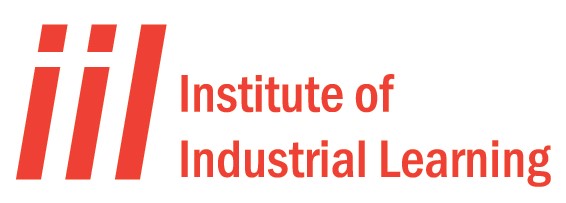Course Duration: 2 Months
Total Classes: 7 (21 Hours)
Course Overview
This course equips students with a holistic understanding of supply chain analytics, emphasizing statistical analysis, forecasting techniques, inventory management strategies, transportation logistics, and supply chain planning. Through real-world examples, assignments, and case studies, it provides practical insights into operating state-of-art businesses by optimizing supply chain operations, ensuring efficient resource allocation, and enhancing decision-making for a robust and responsive supply chain system.
Learning Outcomes:
Foundational knowledge:
- Understand the fundamental concepts, tools, and techniques used in supply chain analytics.
- Grasp how to collect, analyze, and interpret data to make informed decisions about supply chain operations.
- Develop a foundation in statistics, probability, and optimization techniques.
Key analytical skills:
- Effectively apply statistical methods to analyze supply chain data.
- Build and validate regression models to predict supply chain behavior.
- Utilize mixed integer linear programming (MILP) to optimize supply chain decisions.
Core supply chain functions:
- Generate accurate demand forecasts using various forecasting methods.
- Make informed inventory management decisions to minimize costs and maximize service levels.
- Design efficient transportation networks and analyze transportation costs.
- Develop effective supply chain planning strategies for production and resource allocation.
Integration and decision-making:
- Integrate supply chain functions to achieve overall optimization.
- Make data-driven decisions to improve supply chain efficiency, responsiveness, and profitability.
- Identify and solve supply chain problems using analytical techniques.
Practical application:
- Apply learned concepts and tools to real-world supply chain problems through case studies and assignments.
- Develop a problem-solving mindset for tackling complex supply chain challenges.
Career advancement:
- Position themselves for competitive supply chain management, analytics, and consulting roles.
- Enhance their professional value and expertise in a high-demand field.
What You’ll Learn
Module 1: Data and Statistics
- What is supply chain analytics?
- Characterizing a distribution
- Central Tendency Metrics
- Spread metrics
- Probability distributions
- Discrete theoretical distributions
- Continuous probability distributions
- Normal Distribution
- Unit or standard normal distribution
- Dependent vs. Independent variables
- Linear regression model
- Validating a model – first steps model evaluation metrics
- Modeling categorical variables
- The practice of regression
- Modeling issues and tips
- Assignment
Module 2: Mixed Integer Linear Programming
- Numbers, Numbers, Everywhere
- Integer Variables
- Optimization by MILP – Model 1
- Optimization by MILP – Model 2
- Optimization by MILP – Model 3
- Optimization by MILP – Model 3
- Assignment
Module 3: Forecasting
- Demand Process – Three Key Question
- Forecasting Levels
- Forecasting truisms
- Subjective vs. Objective Approaches
- Forecast Quality
- Forecasting Metrics
- Time Series Components
- Time Series Analysis
- Cumulative Vs Naïve Forecasts
- Time Series Models
- New Product Development Process
- Assignment
Module 4: Inventory Management- I
- Why hold Inventory?
- Three Levels of Inventory Decisions
- Classification of Inventory
- Total Relevant Cost (TRC)
- Replenishment Models
- Economic Order Quantity (EOQ)
- EOQ extensions (Case Study Based)
- All time discounts
- One-time only discounts
- EOQ with planned backorders
- Assignment
Module 5: Inventory Management- II
- Examples of Inventory Management
- Inventory replenishment policy
- Quick Asid on Converting Time
- Base Stock Policy
- Continuous Review Policy (S, Q)
- Item Fill Rate (IFR)
- Safety Stock Logic
- Periodic Review Policy (R, S)
- Periodic vs. Continuous Review
- Assignment
Module 6: Transportation Analysis
- Passenger vs. Freight Transportation
- Packaging
- Pallets
- Shipping Containers
- Inland Transportation at Origin
- Container Terminals
- Loading/Unloading Containers
- Ocean Shipping Options
- Inland Transportation at Destination
- Inland Transport
- Transport Options
- Transportation Networks
- Multi Layers of Networks
- The Physical Network
- Operational Network
- Strategic and Service Network
- Impact on Inventory
- Transportation Cost Functions
- Lead time variability
- Assignment
Module – 7: Supply Chain Planning
- Supply Chain Integration
- MRP/DRP Integration
- Master Production Schedule (MPS)
- Manufacturing Strategy
- Time Phased Record
- Level Production Strategy
- Chase Production Strategy
- Production Strategies
- Examples
- Approaches for Solving the FPH Problem
- Simple Heuristics
- One Time Run
- Lot for Lot
- Fixed Order Quantity
- Periodic Order Quantity
- Production Planning MILP
- Comparing Different FPH Models
- Material Requirements Planning (MRP)
- Bill of Materials (BOM)
- Distribution Resource Planning (DRP)
- Assignment
Benefits of the SCA Course
Understand Supply chain data & analytics.
Understand key metrics, distributions, and modeling techniques to analyze and optimize supply chains.
Optimize Inventory & Operations
Learn proven methods like Economic Order Quantity (EOQ), Base Stock, MRP, and DRP to manage inventory efficiently.
Make Data -Driven Decisions
Forecast demand, identify trends, and improve forecasting accuracy with various time series models.
Navigate Logistics & Transportation
Understand different transportation options, networks, and cost functions to make informed shipping decisions.
Networking Opportunities
Engaging in the course opens doors to networking opportunities, allowing you to connect with professionals who share similar interests and explore new career paths.
BDT 10000 (Online)
BDT 15000 (In Person)
Details
North American Teaching Style
2 Months | 7 Classes (21 Hours)
Next Session: To be announced
Online Details
Platform: Live Class on Zoom
Class Time: Every Friday (9:00 A.M. – 12:00 P.M.)
Assessment Processes:
- The course assessment mark is 100.
- The assessment for this course consists of 2 examinations: Midterm (30) and Final (35)
- Examination follows a Multiple-Choice Question (MCQ) format.
- Assignment – 35 Marks
Passing Score:
To complete SCA, a student must need to obtain a minimum of 70% marks.
Eligibility:
A supply chain analytics certification course can benefit many professionals and organizations involved in supply chain management, logistics, and related fields such as Supply Chain practitioners, Data Analysts, Business Analysts, Operation Managers, Consultants, Graduate Students, and Entrepreneurs. No Age limits.
Documents:
To get enrolled in the SCA course you have to submit the following documents:
● Two copies of the passport-size photo
● Photocopy of the last academic certificate
● Photocopy of the NID card or passport
N: B: Course fees are non-refundable
Let’s Introduce to Your Instructor

Supply Chain Consultant and Instructor
MITx in PoM, MITx in SCM, PGDRCM, PGDSCM,
B.Sc. (ME-KUET), Certified Google Data Analytics Professional
Admission Details
To reserve your seat, kindly complete the admission form by clicking on the following link:
https://forms.gle/L6ru6HcLd5bkh3cx9
For payment, you can deposit, NPSB or EFT in the given below account. Please provide the deposit slip or screenshot of the NPSB or EFT once the payment has been made. If you will pay in Bkash Account, please share the Bkash number and Transaction ID at info@iil-bd.com
The Bank Details are given below:
Bank Name: Bank Asia
Account Name: Institute of Industrial Learning
Account Number: 62033000393
Branch Name: Banani (Dhaka North Branch)
Routing Number: 070260683
Bkash Number: 01894 – 627101 (Merchant)
For any assistance or further inquiries, our team is here to help. Feel free to reach out to us at 01894 – 627100, or 01894 – 627101.
Secure your seat now and embark on an enriching learning journey with us at IIL. We look forward to welcoming you!
Please note that payment must be made prior to filling out the admission form.
“Enrolling in the ‘Certified Professional in Procurement Management course has been a game-changer for me. This comprehensive program equipped me with invaluable skills and knowledge essential for excelling in the dynamic field of procurement. From mastering negotiation tactics to understanding blockchain technology and supplier referencing models, every aspect of procurement management was covered with meticulous detail.”
“The Strategic Warehouse Management for Supply Chain Professionals (SWMSCP) course was exceptional, largely due to the expertise and knowledge of our instructor. He is highly experienced and possesses an in-depth understanding of the subject matter. I highly recommend this course for anyone seeking to deepen their knowledge in warehouse management.”
“I am extremely pleased with the Export and Import Course and the exceptional instruction provided. The trainer’s clear and friendly communication style made complex topics easy to understand, and his step-by-step approach to the material was invaluable. The course effectively filled crucial gaps in my knowledge of export/import banking, logistics, and documentation. Overall, I am well satisfied with both the learning experience and the comprehensive content covered.”


